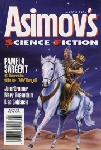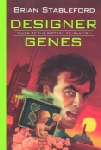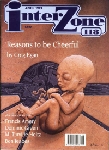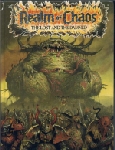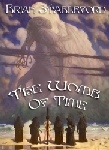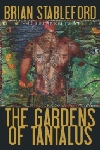The Way of the Witchfinder [4]
Wolf Riders ed. David Pringle, GW Books, 1989; Boxtree, 1995; (as by Brian Craig)Translated into Polish as: 'Szlak Wiedzmolapa' in Jezdzcy wilkĘw ed. David Pringle, Games Workshop, 1995 (as by Brian Craig)
Review by Ian Braidwood
Those of you who are not familiar with the Warhammer world will need to be told that the conflict here is not between good and evil, but law and chaos. This story is about one such spat.
The citadel of Ora Lamae is ruled by Bayard Solon and his daughter Syrene, which is only a problem because the two of them are in thrall to deamons and taxing the local farmers out of house and home.
In desperation, the people in the surrounding countryside pray for intercession and yay mighty Solkan delegates the priest Yasus Fiemme, who delegates Florian, who puts down his broom and sets to work.
Pointless hackwork.

